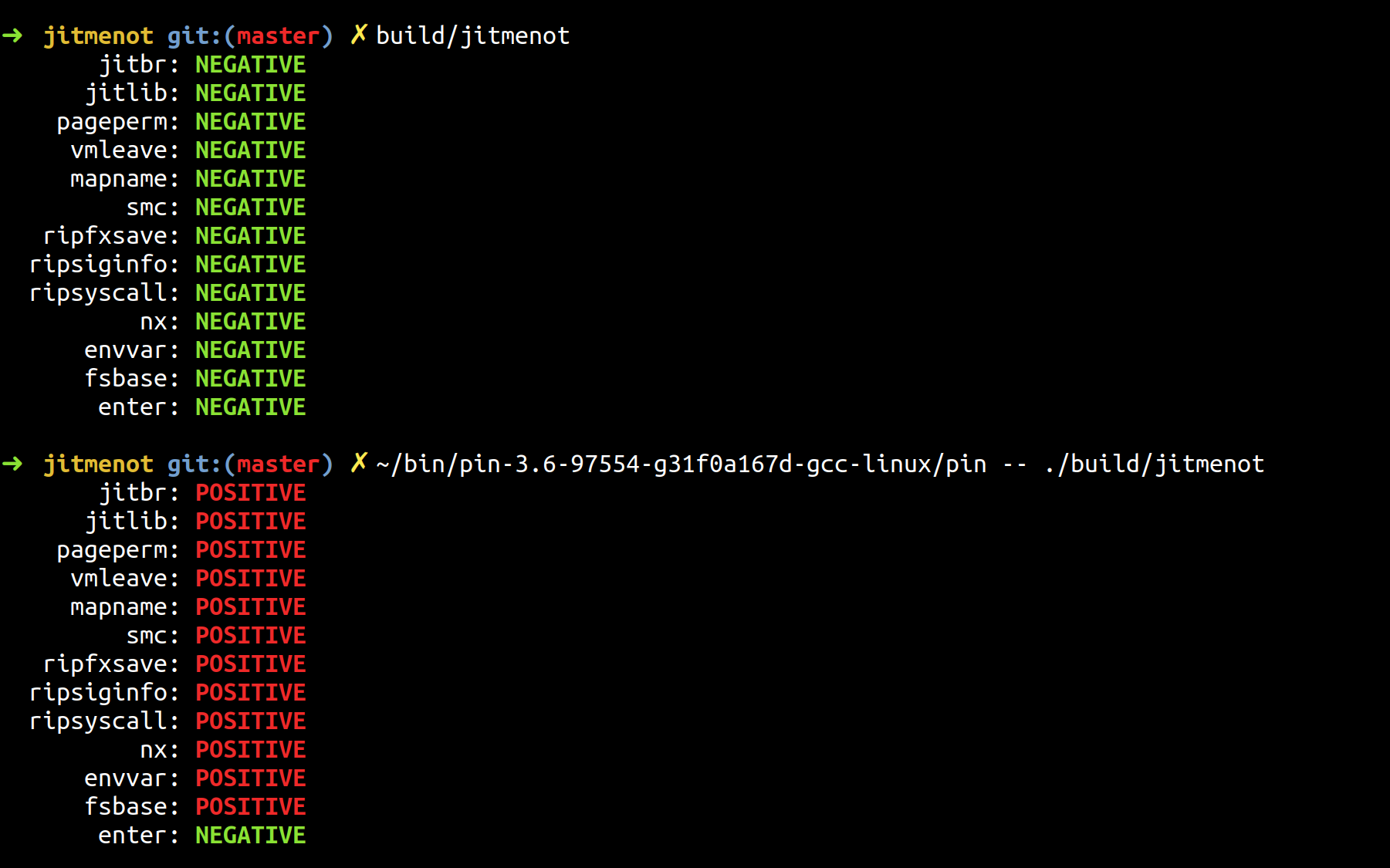This repository contains supporting material for my master thesis Security Evaluation of Dynamic Binary Instrumentation Engines supervised by Julian Kirsch (@kirschju).
Utilising different artefacts introduced by the instrumentation process in the program's execution, one can detect the underlying Dynamic Binary Instrumentation (DBI) engine. The developed tool called jitmenot employs 13 different DBI detection mechanisms and can be built with the provided Makefile. The resulting binary (build/jitmenot) is then ready to be executed in the context of any DBI framework. A red POSITIVE next to a detection mechanism indicates that it has revealed DBI engine's presence, while a green NEGATIVE signals that no instrumentation was detected.
In order to execute the fsbase test, one has to load a kernel module (jitmenot/fsgsbase-mod) using make start which allows the execution of the rdfsbase instruction in userspace, available only for Intel processors newer than Ivy Bridge. Finally, starting jitmenot with -v parameter prints additional information for each test case.
Functionality was tested on Linux x86-64 with Intel Pin, DynamoRIO, QBDI, and Valgrind. Pull requests regarding new detection mechanisms are always welcome.
-
sandbox/SandboxPinTool.cpp: Tracks all system calls executed by the instrumented application and prints basic information about them, for example syscall number, parameters. -
sandbox/escape.c: Escapes the DBI framework's sandbox by overwriting its own instrumented code. Executes one system call which is not registered by the tool as a proof of concept.
-
shadow/pwnccgen.py: A python script that generates a program to a given Pintool which escapes DBI engine's sandbox by executing any assembly instructions, provided by the user via standard input. -
shadow/ShadowStackTool.cpp: A straightforward implementation of a Shadow Stack according toROPdefender: A Detection Tool to Defend Against Return-Oriented Programming Attacksby Lucas Davi, Ahmad-Reza Sadeghi, and Marcel Winandy. This Pintool can be used to illustrate the sandbox escape technique performed by programs generated withpwnccgen.py. -
pwin/pwn.py: A python server that bootstraps an attack succeeding with probability 1:16 against an instrumented versions ofwget, 1.19.2 and older (binary also provided in the same folder). -
pwin/shell.c: A simple program which spawns a shell only in a DBI environment by executing code residing on a non-executable stack.
More information about the core concepts can be found in the thesis. To experiment with the examples, one can build a Docker image using the provided Dockerfile. Alternatively, you can download an already built image from https://hub.docker.com/r/zhechkoz/pwin.
To create a container use:
docker run --privileged -i -t zhechkoz/pwin /bin/bash

